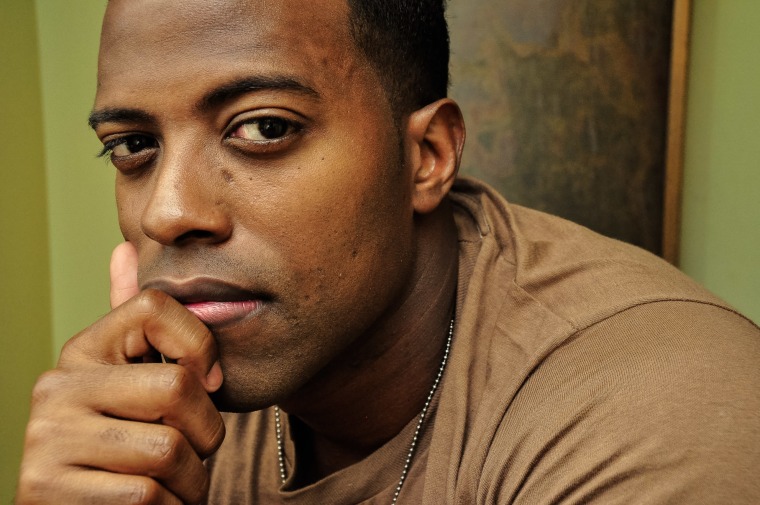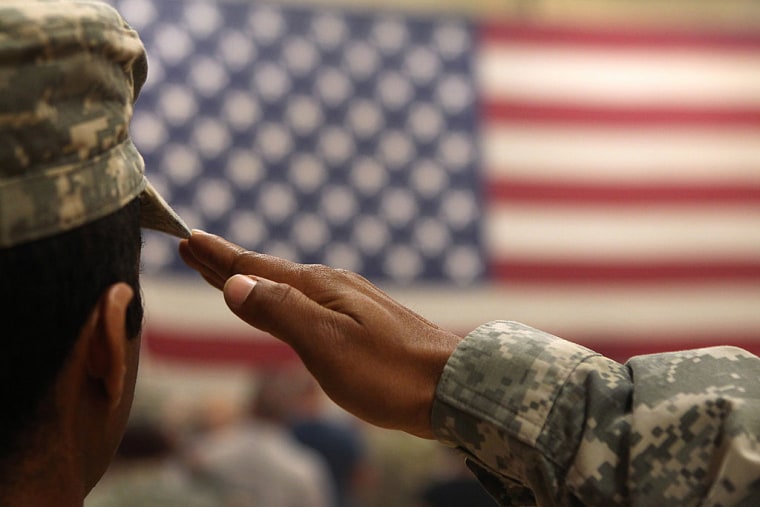When President Donald Trump announced in a series of July tweets that transgender soldiers would not be able “to serve in any capacity in the U.S. Military,” he not only engaged in an unthinkable act of discrimination — he also put the lives of brave service members at additional risk.
As a gay veteran who served under “don’t ask, don’t tell,” I know firsthand the mental and emotional anguish that comes from serving your country while your existence is at best ignored and at worst outright ostracised. Serving under these conditions took an enormous toll on me personally, and my fear is that a renewed ban on transgender troops will cause them similar distress.

During a particularly dark time in my life as a closeted soldier, when I was just 19 years old, I contemplated suicide. The pain and isolation I felt because I had to hide my sexual orientation was a huge contributing factor. In my memoir, “Confessions of a Don’t Ask, Don’t Tell Soldier,” I reflect on this dark time:
The night I decided to end my life, I sat alone in my barracks room just a few weeks after I came out to my mother. In the weeks after my admission to her and her subsequent rejection of it, I’d sunk into a deep depression. I was lost, lonely, and consumed with self-hatred about my sexual orientation. I knew the fact that I would never be like other people was what bothered her the most. Though I wanted deeply to talk to someone about my feelings, I knew I couldn’t. I wanted escape. I figured that the nothingness that death would bring would certainly be better than anything I was experiencing at the time.
If I told anyone about why I wanted to kill myself, even a Chaplain or a mental health person at the VA Hospital on base, I would be discharged under the “Don’t Ask, Don’t Tell” policy. I stood to lose everything even if they helped me beforehand. I knew very little about how people went about suicide, but knew that I didn’t have the stomach to slit my wrists. I remembered vaguely reading about how any pills taken in large doses could result in death, so I’d bought an economy- sized bottle of Tylenol from the gas station that was walking distance from the barracks, meaning to partner it with a bottle of cheap vodka I’d swiped from an impromptu party that some soldiers in the building had thrown a few weeks back. I walked into the bathroom in my barracks room and closed the door, stealing one last glimpse at the night sky just beyond the window.
While being the target of discrimination can manifest itself differently in every individual, the reality is that members of the LGBTQ community are at increased risk of self-harm and depression. It pains me that nearly seven years after I protested “don’t ask, don’t tell” at the front gates of the White House, we’re having the same conversations about discrimination and bigotry when it comes to the LGBTQ active duty and veteran community.
With LGBTQ lives and rights under attack in so many different ways — from workplace protections to “bathroom bills” — it might seem easier to just give up and not fight for the rights of transgender soldiers. But we all have a role to play here in order to right this wrong.
To trans troops and veterans: know that your service matters, that it is as good, if not better, than every other soldier serving around you, and that the LGBTQ veteran community as well as the broader LGBTQ community has your back. Please use the resources that are available to you, particularly OutServe-SLDN, which works diligently to advocate for the rights of LGBTQ troops and veterans on the national level and offers multiple chapters that form support groups on the local level.
Veterans of all sexual orientations and gender identities need to keep on “telling,” getting our stories out there and making our voices heard, since military law makes it harder for active-duty soldiers to advocate for themselves when it comes to matters like the discrimination trans soldiers already face.
And to everyday Americans of any sexual orientation or gender identity, please do not forget your brothers and sisters who serve every single day to protect all of the rights that we sometimes take for granted.
Serving this country remains one of the great honors of my life, and taking that right away from anyone seems downright un-American. We need to make America whole again by fighting for those who risk their lives fighting for us.
Rob Smith is a journalist, LGBTQ activist and the author of "Confessions of a ‘Don’t Ask, Don’t Tell’ Soldier: How a Black, Gay Man Survived the Infantry, Coming Out, and the War in Iraq."

